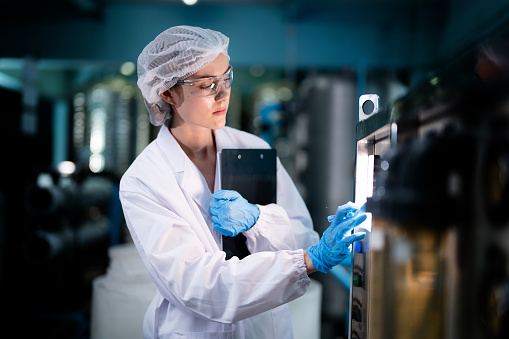Harnessing the Power of Microbes Innovations in Biotechnology
Microbes have long been recognized as crucial components of Earth’s biosphere, influencing everything from nutrient cycling to disease pathology. In recent years, advancements in biotechnology have unveiled innovative methods to harness these tiny organisms for various applications, including agriculture, medicine, and environmental sustainability. Such innovations are not merely responses to challenges but are also transforming how industries operate and interact with the natural world. This blog post will explore the myriad ways in which we are tapping into the capabilities of microbes, discussing the technologies, research breakthroughs, and implications for the future.

Understanding Microbes and Their Potential
Microbes encompass a wide variety of organisms, including bacteria, fungi, archaea, and viruses, often invisible to the naked eye yet filled with potential. This microscopic world plays vital roles in different ecosystems, affecting processes such as decomposition, nutrient absorption, and even climate regulation. Distinguished readers, it is essential to grasp that while many people associate microbes solely with disease, they are primarily beneficial, performing functions that are integral to the viability of life itself.
The capacity of microbes to adapt and thrive in various environments makes them invaluable in biotechnology. By harnessing their unique characteristics, researchers and industry professionals alike create novel solutions to significant problems. These include developing biodegradable materials, producing biopharmaceuticals, and enhancing soil quality for sustainable agriculture. In the context of pressing global challenges, such as climate change and food insecurity, leveraging microbial capabilities has never been more crucial.
Microbial Innovations in Agriculture
The role of microbes in agriculture is one of the most promising areas of biotechnological innovation. Specific bacteria and fungi promote plant growth, enhance nutrient uptake, and improve soil health. Beneficial microorganisms, such as mycorrhizal fungi and rhizobial bacteria, form symbiotic relationships with plant roots, facilitating the absorption of essential nutrients like nitrogen and phosphorus.
One significant innovation is the development of biofertilizers, which consist of living microorganisms that, when applied to soils, promote plant growth by increasing the availability of nutrients. These biofertilizers reduce the need for chemical fertilizers, thus minimizing environmental impact while ensuring crop productivity. This approach aligns with sustainable agricultural practices, ultimately enhancing food security without compromising ecological health.
Advancements in Bioremediation
Bioremediation is another remarkable application of microbial technology, leveraging microbes to detoxify polluted environments. Various microbes possess the ability to degrade hazardous substances, including heavy metals and petroleum compounds, making them invaluable allies in environmental cleanup efforts. For instance, researchers have identified certain bacteria that can metabolize crude oil, effectively breaking it down into harmless byproducts.
This method of pollution remediation is often more cost-effective and environmentally friendly than traditional physical or chemical methods. Bioremediation projects have gained momentum across industries, especially in oil spills and wastewater treatment. As determined researchers explore new microbial strains, the potential for lowering the ecological footprint while restoring contaminated sites becomes increasingly attainable.

Revolutionizing Medicine with Microbes
The medical field is experiencing a revolution thanks to innovations in microbiology. From antibiotics to probiotics, the manipulation of microbes is transforming the way we approach health and disease. The discovery of novel antibiotics derived from microbial sources has been a cornerstone in the fight against bacterial infections, particularly in the wake of rising antibiotic resistance among pathogens.
Moreover, probiotics—live microorganisms that confer health benefits when consumed in adequate amounts—are gaining significant attention for their role in gut health. Research has shown a strong correlation between gut microbiota and overall health, linking microbial diversity to diseases ranging from obesity to diabetes. By fostering a healthy balance of gut bacteria, we can enhance immune function and potentially prevent various health disorders.
Exploring Synthetic Biology
Synthetic biology is an exciting frontier in biotechnology that combines biology and engineering to create new organisms designed for specific purposes. This field often employs microbes as chassis to produce valuable compounds, including biofuels, pharmaceuticals, and specialty chemicals. Ongoing innovations in genetic engineering—such as CRISPR—allow scientists to manipulate microbial genomes with unprecedented precision, paving the way for creative solutions to global challenges.
The ability to engineer microbes to produce renewable energy sources from waste materials is particularly noteworthy. For instance, researchers are developing strains of bacteria that can convert agricultural waste into biofuels, thus reducing reliance on fossil fuels and minimizing waste disposal issues. Such innovations could herald a new era of sustainable energy that is both economically and environmentally viable.
The Role of Microbes in Climate Change Mitigation
Microbes are also emerging as critical players in mitigating climate change. Certain types of bacteria, known as methanogens, play a significant role in the carbon cycle by producing methane, a potent greenhouse gas. Conversely, by employing microbes that capture and sequester carbon dioxide, researchers are exploring ways to reduce atmospheric CO2 levels.
Moreover, soil microbes can enhance the resilience of ecosystems in the face of climate change. By promoting organic matter decomposition and nutrient cycling, they significantly affect soil structure and fertility, enabling crops to withstand extreme weather conditions. Understanding and leveraging these microbial processes can contribute to more resilient agricultural systems and healthier ecosystems.
Consumer Products Derived from Microbial Innovations
The integration of microbes into consumer products is another exciting manifestation of biotechnological advancements. From biodegradable plastics to natural flavorings, the consumer market is witnessing an increase in products derived from microbial processes. Biodegradable plastics, created using microbial fermentation, present a sustainable alternative to traditional petroleum-based plastics.
Moreover, the food and beverage industry is exploring microbial fermentation for flavor enhancement, preservation, and nutritional benefits. Fermented foods, such as yogurt, kimchi, and kombucha, are gaining popularity due to their health benefits, notably their ability to promote gut microbiota diversity. The culinary applications of microbial technology are vast, enriching our diets while supporting sustainable food systems.
Challenges and Ethical Considerations
Despite the excitement surrounding microbial innovations, it is crucial to address the challenges and ethical considerations accompanying biotechnology. The manipulation of microbial genomes raises questions about safety, biodiversity, and potential unintended consequences. It is essential for researchers, policymakers, and the public to engage in discussions regarding the ethical implications of synthetic biology and genetic engineering.
Furthermore, intellectual property rights in biotechnology can limit access to these innovations, particularly for developing nations. Ensuring that beneficial microbial technologies are accessible and affordable is paramount in promoting global equity in health and sustainability. As stewards of these innovations, stakeholders must navigate the complexities of ethics, access, and responsibility.

Looking Towards the Future
As we look to the future, the potential of harnessing microbes continues to grow exponentially. With ongoing research and technological advancements, there are no limits to what we can achieve through microbial biotechnology. From combating climate change to revolutionizing medicine, the applications are vast and varied, offering hope for a more sustainable and equitable world.
The collaboration between interdisciplinary teams—including microbiologists, engineers, environmental scientists, and policymakers—will be crucial in accelerating innovation. By fostering a culture of collaboration and open communication, we can ensure that the potential benefits of microbial innovations are realized for all, thus enhancing human health and preserving the environment.
In conclusion, the fascinating world of microbes is filled with possibilities that hold the key to addressing some of the most pressing challenges of our time. The innovations arising from harnessing the power of microbes serve as a testament to human ingenuity and resilience. As distinguished readers and advocates for science, the responsibility lies with all of us to support and engage in the pursuit of microbial innovations that can lead to a brighter, more sustainable future.
댓글